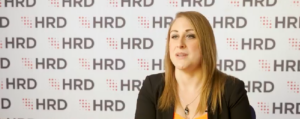Talent agility: Developing flexible approaches at Nestlé
- 4 Min Read
To remain competitive today, organisations need to remain nimble and flexible to meet the demands of a disrupting environment and competitive landscape. HRD Connect spoke with Jean-Christophe Font, Chief Talent Officer at Nestlé ahead of the HRD Summit/Europe to discover how Nestlé defines future talent pools, their biggest challenges and how vital an ever-developing skillset is for everyone in the organisation.
- Author: Emily Sexton-Brown
- Date published: May 8, 2018
- Categories

 How do you create a talent pool that represents your future business?
How do you create a talent pool that represents your future business?
Our HR teams need first to understand the future changes happening in the world in order to be able to support the business, but also understand the evolutions to come in the business. Working closely with the business, being part of the business, is key to identify new skills or expertise needed well in advance, and then being able to build the appropriate strategic development plans: learning journey, career development, external talent mapping and proactive sourcing
How does Nestlé meet the demands of the current disruptive business environment?
The food industry is a fast-changing world where consumers’ preferences are evolving and they are more demanding: product quality (consumers want to know more about the product origin and how it is made), digital communication, a resurgence for what is local.
At Nestlé we are able to adapt ourselves and navigate in a fast-evolving environment. To respond to the consumer needs and expectations, we shape the industry by investing in our products and technology. We are very well positioned to win in the marketplace today and tomorrow.
What are the biggest changes you have seen at Nestlé since joining?
Nestlé has always evolved since it was founded 150 years ago. We are constantly changing our portfolio aligned with our vision as a leading nutrition, health, and wellness company. We are becoming more agile to be able to react faster to our consumer needs while improving our bottom line. This means the increase of speed, a journey to change what slows us down, making sure that we take decisions faster.
“The future will be more agile, virtual, more purpose-driven, more demanding and more complex.”
What do you think are the biggest challenges for business leaders in an agile organisation?
To become an agile organisation, leaders need to adapt their leadership style –empowering their team, experimenting and allowing mistakes and being prepared to learn from them. It’s about building trust. Once you reach this level, you should stay poised especially in difficult situations. Leaders need also to get used to working with networks, with organisations that are not hierarchical anymore, with people who contribute to various organisations.
The future of work won’t be about the setup we know today with structures, positions, FTEs; the future will be about people willing to contribute to projects, and for various companies. This is already happening today. It is important for leaders to be as effective working in this new environment that includes managing teams remotely through virtual communication than as they were before when facing people physically.
How can your company make sure its employees are constantly evolving and developing their skillset?
Learning is part of our culture. We promote a 70-20-10 learning approach. We encourage employees at every level to keep upgrading their knowledge and competencies. We ensure that HR, line managers and employees each take responsibility for turning training and development priorities into actions. The identification of skills gaps is fully integrated into the daily life and the operational master plans of our teams.
As a company, we offer as much as we can various opportunities such as job swap, missions, etc. Above and beyond this, we have also transformed our learning and development approaches so that we can bring learning anytime, anywhere at large scale. We started experimenting last year “learning in cloud” solutions with good feedback from participants.
Do you think agility and flexibility within a business is vital for the future of work?
We have just finalised the review of our group people strategy which resulted in our businesses calling for agility and flexibility, I would also add speed and trust within that.
How do you anticipate the working work to look like in the years to come?
A lot has been written on this topic by great people. From my perspective, the future will be more agile, virtual, more purpose-driven, more demanding and more complex. Therefore, we need to make sure that our people approaches don’t get in our way, but on contrary bring value and empower people to act and thrive.
For more information about the HRD Summit/Europe, click here.





